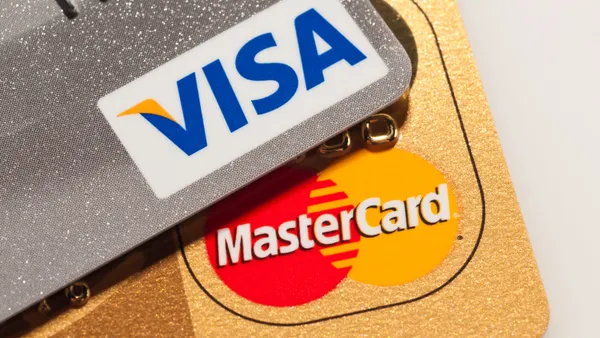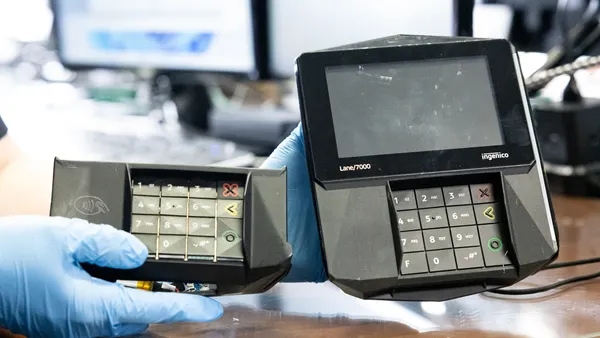Sen. Ted Cruz introduced legislation this week that would prohibit the Federal Reserve from issuing a central bank digital currency directly to consumers, a companion bill to legislation introduced in the House earlier this year.
In a press release Wednesday, the Texas Republican argued that a retail CBDC would be used as a "financial surveillance tool" by the federal government which would hold digital money accounts at the Federal Reserve as if it were a retail bank.
The Fed would then "collect personally identifiable information on users, and track their transactions indefinitely," the release said, adding that a CBDC would "centralize Americans’ financial information, leaving it vulnerable to attack."
The release noted that the Fed currently doesn’t have the power to offer retail bank accounts.
Unlike cryptocurrencies such as Bitcoin, CBDCs are backed by a government entity. While the Fed has talked about the possibility of creating a CBDC, it has not moved as far down that path as other countries, such as China, which has launched a CBDC pilot program.
The CBDC discussion was jump-started this month by President Joe Biden’s executive order focused on digital assets. In the order, Biden placed the "highest urgency" on research and development efforts for a U.S. central bank digital currency, and directed federal agencies to explore the issuance of a digital dollar.
"The federal government has the ability to encourage and nurture innovation in the cryptocurrency space, or to completely devastate it," Cruz said in the release. "This bill goes a long way in making sure big government doesn’t attempt to centralize and control cryptocurrency."
Cruz doesn’t just talk about cryptocurrency. He’s also an investor in digital money. Financial disclosure forms cited in press stories show that he purchased between $15,001 and $50,000 worth of bitcoin in January. Bitcoin recently traded at $45,771, little changed since the start of the year, though down about a third since last November, according to Coindesk.
Sens. Chuck Grassley (R-IA) and Mike Braun (R-IN) are co-sponsors of Cruz’s bill.
The House version of the legislation was introduced in January by Rep. Tom Emmer (R-MN). In a separate statement, Emmer applauded Cruz’s proposal. He argued that a framework for a CBDC must allow a digital dollar to be "accessible to all, transact on a blockchain that is transparent to all, and maintain the privacy elements of cash."
Emmer, a co-chair of the Congressional Blockchain Caucus, concluded: "anything less puts Americans on the road to CCP-style financial authoritarianism," in a reference to the Chinese Communist Party.
The Federal Reserve itself doesn’t appear to be in any rush to jump on the crypto bandwagon. At least that was the takeaway from a much-delayed draft paper the Central Bank released in January laying out the pros and cons of a CBDC. The 40-page report made no policy recommendations and was designed to solicit comments from the public, which has until May 20 to respond to the Fed.
Some advocates that back creation of a central bank digital dollar say a U.S. CBDC is crucial to maintaining the dollar's standing as the world's reserve currency. Chair Jerome Powell and other Fed representatives, during many congressional hearings, have fielded concerns from lawmakers that the U.S., by not yet having an operational CBDC, risks falling behind other nations in the technology of finance.
Meanwhile, a group of Democrats led by U.S. Rep. Stephen Lynch (D-MA) introduced a bill earlier this week to issue a digital dollar through the Treasury Department that would be an alternative to the CBDC option. They argued it would better preserve privacy for users.
The proposal called the Electronic Currency and Secure Hardware Act, would allow for a peer-to-peer play on the notion of a digital currency and preserve the anonymity of physical cash, according to a press release from Lynch’s office.
Correction: The story has been updated to correct a reference to the CCP, which refers to the Chinese Communist Party.













